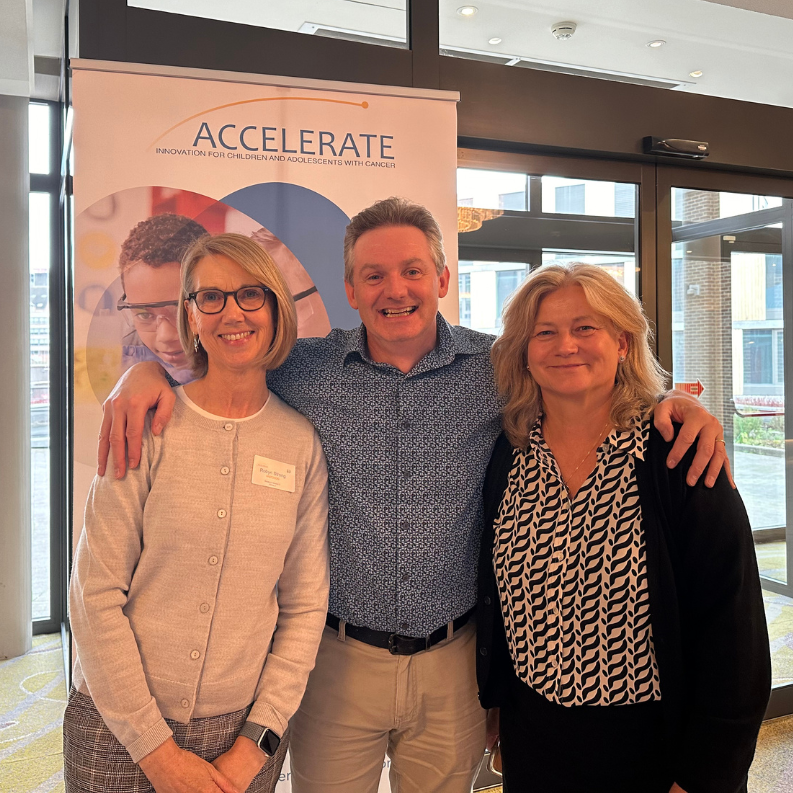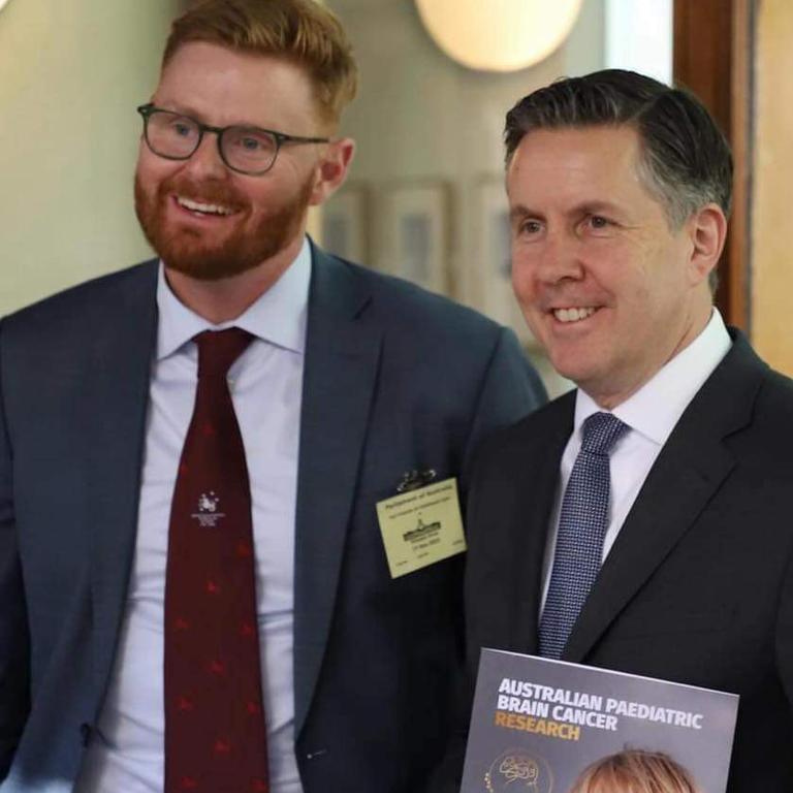Two promising ANZCHOG-sponsored clinical trials awarded funding by Australian Government
Friday 19 April 2024
The Australian Government has awarded the Australian and New Zealand Children’s Haematology Oncology Group (ANZCHOG) more than $2.5 million in support of two international paediatric cancer clinical trials; BEACON2 and VICTORY. Through the Medical Research Future Fund (Clinical Trial Activity for Rare Cancers, Rare Diseases and Unmet Need), the trials will each receive funding for up to five years.
BEACON2 is an international clinical trial aiming to determine which treatment is best for patients with relapsed neuroblastoma. Neuroblastoma, a rare form of cancer that develops in nerve cells, affects approximately 50 children each year in Australia, primarily infants and children under the age of five. Of those diagnosed, around half have high-risk neuroblastoma, resulting in a 50% chance of relapse and poor survival rates, despite intensive therapy. There is an urgent need to improve therapy to change this.
The recent BEACON trial, conducted by Cancer Research UK Clinical Trials Unit, identified two promising treatments for relapsed high-risk neuroblastoma; anti-GD2 immunotherapy and anti-angiogenic therapy (in combination with chemotherapy drugs). BEACON2 provides the opportunity for Australian paediatric cancer centres to participate in the successor trial, which will first investigate which combination of these drugs is most effective. The trial is expected to commence later this year, with eight participating Australian paediatric cancer centres to be opened by the end of 2024.
“It is essential that Australia increases the options for children who have relapsed from neuroblastoma and being part of the promising international BEACON2 trial will provide access to new treatment options. Although these options are experimental at this stage, they could lead to overall better survival rates and will certainly support the development of more effective treatments for this devastating disease. We thank the Australian Government for recognising the need to embrace the opportunity to take part in such trials and we hope this international collaboration is continued in the future as global collaboration is absolutely essential if we are to accelerate the slow pace of research in rare childhood cancers”.
Lucy Jones, Lived experience advocate and CEO Neuroblastoma Australia,
“Right now, most kids with relapsed neuroblastoma end up dying from cancer. There’s an urgent need to not only find better treatments but also develop better clinical trials which quickly and efficiently test new therapies. The Medical Research Future Funding (MRFF) to ANZCHOG means that children from Australia can participate in the international BEACON2 clinical trial, an exciting, multi-arm, multi-stage randomised clinical trial platform for relapsed neuroblastoma. The multi-arm multi-stage design means that multiple novel regimens can be tested within the BEACON2 trial. The MRFF funding also allows Australian researchers based at the Children’s Cancer Institute to gain a better understanding of relapsed neuroblastoma biology and tumour evolution by developing biomarkers of response and resistance.”
Dr Toby Trahair, Australian Neuroblastoma specialist and Australian BEACON2 lead investigator
VICTORY is an international pilot clinical trial, investigating the efficacy of a weekly combination of intravenous vinblastine, a chemotherapy drug, with a highly targeted inhibitor drug, Tovorafenib (DAY101), for paediatric patients with recurrent/progressive low-grade gliomas.
Low-grade gliomas (LGG) make up 40% of Central Nervous System (CNS) tumours in children. Paediatric LGG is rare, with less than 100 new diagnoses per year in Australia. Despite good long-term survival (90%), LGG frequently cause chronically debilitating health conditions such as visual and motor-function impairment, growth and development impairment and seizures. Additionally, as a result of treatment consisting of several lines of chemotherapy, children with LGG may suffer highly detrimental long-term side effects.
Early phase trials using vinblastine as an alternative chemotherapy drug for relapsed and refractory LGG have shown favourable, event-free survival. Tovorafenib (DAY101) has also shown promising results when used in other paediatric LGG clinical trials.
VICTORY will open in children’s cancer centres throughout Canada, New Zealand and Australia, with ANZCHOG sponsoring eight Australian sites and one New Zealand site to participate in the trial. All sites are expected to open by the end of 2024.
“Through this funding we hope to show that combination targeted therapy with traditional chemotherapy can improve outcomes for those children with chronically relapsing and remitting low grade glioma that can cause real disability for our young people”.
National Principal Investigator, A/Prof Jordan Hansford
ANZCHOG is a non-profit organisation committed to ensuring Australian and New Zealand children receive world-class cancer care. We are the peak professional body for paediatric oncologists and health professionals who care for children with cancer, spearheading national initiatives to enhance clinical care through communication, research, networking and education. We are also the national cooperative clinical trials group for childhood cancer, actively working with trial consortia around the globe to ensure Australian and New Zealand children have the opportunity to access the latest promising cancer treatments.


